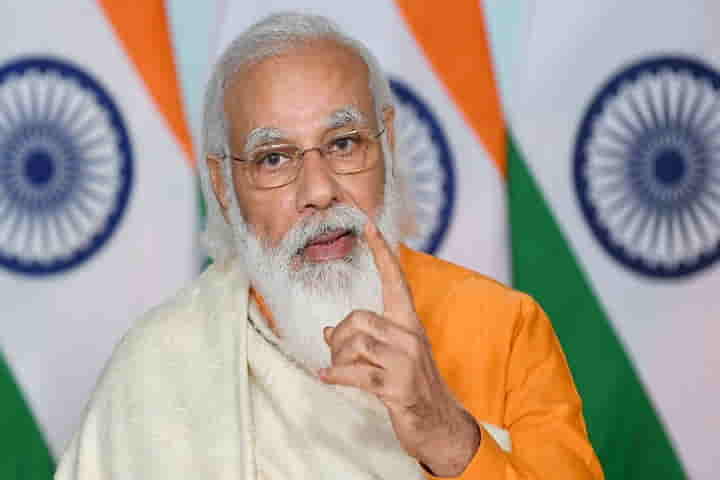

Prime Minister Narendra Modi announced the new vehicle scrappage police today
<p>
<strong>Prime Minister Narendra Modi on Friday launched the country&rsquo;s vehicle scrappage programme which is expected to help phase out polluting vehicles in an environment-friendly manner.</strong></p>
<p>
The Prime Minister said that the policy will bring in investments of around Rs 10,000 crore and Alang in Gujarat can become the hub for vehicle scrapping.</p>
<p>
Speaking about the benefits of the scrappage policy for the common man, PM Modi said, &quot;Firstly, a certificate will be given on scrapping of the old car, which will ensure that an individual does not have to pay registration fees while buying a new car. He will also get a discount in road tax. Secondly, a person will save money on maintenance cost, repair cost and fuel efficiency of the old car.&quot;</p>
<p>
&quot;The launch of Vehicle Scrappage Policy today is a significant milestone in India&#39;s development journey. The Investor Summit in Gujarat for setting up vehicle scrapping infrastructure opens a new range of possibilities. I would request our youth &amp; start-ups to join this programme,&quot; the PM said in a tweet.</p>
<p>
&quot;Vehicle scrapping will help phase out unfit &amp; polluting vehicles in an environment-friendly manner. Our aim is to create a viable #circulareconomy and bring value for all stakeholders while being environmentally responsible,&quot; the PM said.</p>
<p>
He also said that the current method of scrapping materials is not productive</p>
<p>
Speaking at the event in Gujarat, Minister for Road Transport &amp; Highways Nitin Gadkari said that the scrappage policy is&nbsp; likely to result in a cut in raw material costs by around 40 per cent. Currently around Rs 22,000 crore worth of scrap steel is imported in the country every year, and scrapping old vehicles will help reduce this dependence. The minister also said that the policy will help the country become an industrial hub of automotive manufacturing.</p>
<p>
The government will also set-up testing centres across all districts using the public-private partnership (PPP) model, Gadkari added.</p>
Prime Minister Narendra Modi on Monday welcomed US Vice President JD Vance, his wife Usha…
Prime Minister Narendra Modi is set to visit Saudi Arabia from April 22 to 23,…
Major Archbishop of Trivandrum of the Syro-Malankara Catholic Church, Cardinal Baselois Cleemis Thottunkal, on Monday,…
Protests against the arrest of Mahrang Baloch and members of the Baloch Yakjehti Committee (BYC)…
Union Home Minister Amit Shah on Monday lauded security forces for neutralising eight Naxals in…
The President of the Tibetan Government in exile, Sikyong Penpa Tsering began his visit to…